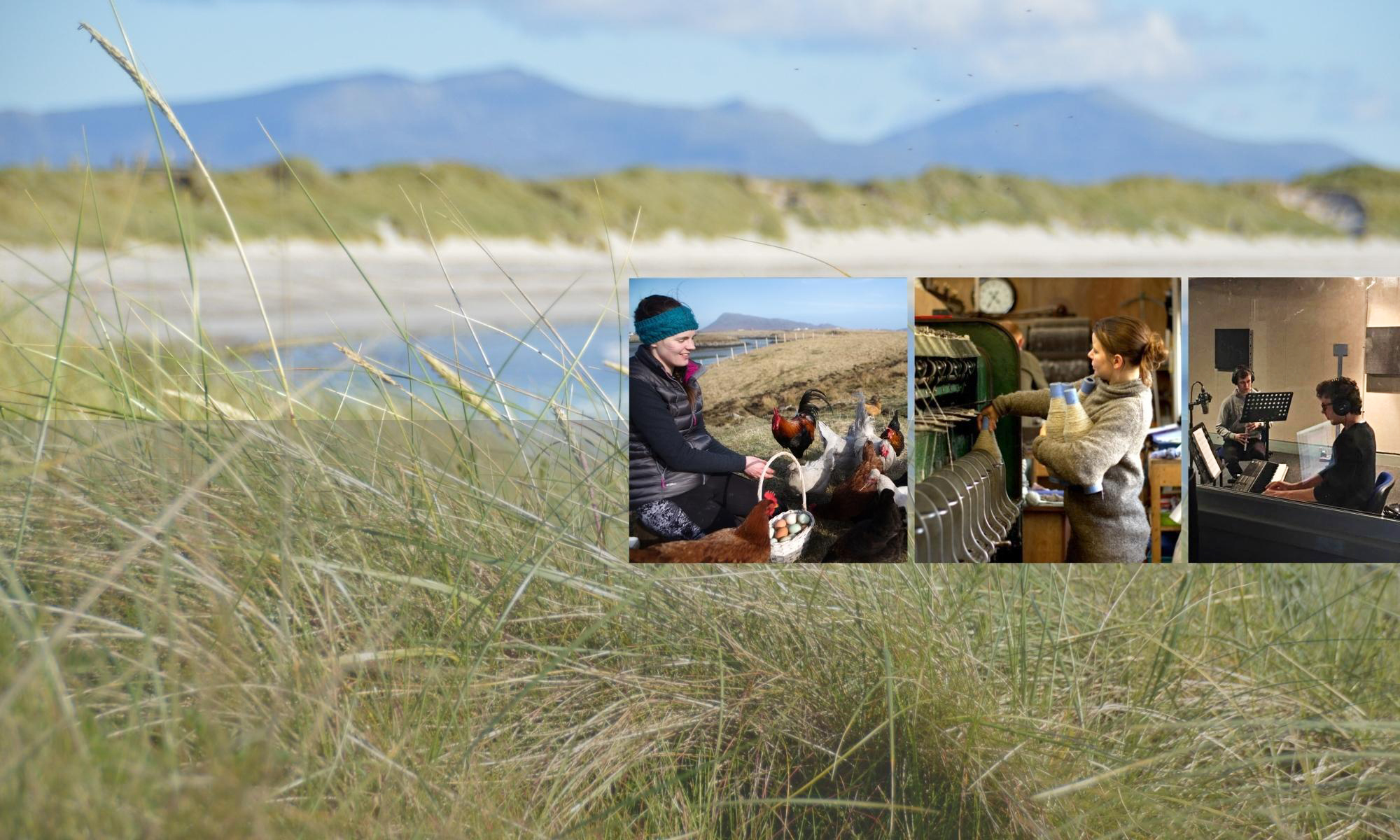The comments in this post arose from our discussions about lockdown. They argue neither for lifting or maintaining lockdown restrictions, but point to issues we must address as island communities, whatever timetable for easing lockdown may be agreed.
There have been no identified cases of Covid 19 in Uist and Barra, and only a handful in Lewis, and community transmission seems to have been halted there (no further cases since 10th April). This would suggest that easing lockdown conditions on these islands should be possible, providing we maintain travel restrictions to and from the mainland.
On the other hand, the sudden emergence of cases on neighbouring Skye (through which most supplies to Uist come) demonstrates how vulnerable our communities could be if and when cases present themselves here. The fact that we all use a few common facilities, like a few supermarkets, means that transmission in the community could happen rapidly.
While these islands are very fortunate that we do not have any identified cases of Covid-19 at the moment, we should not hide from the fact that the lockdown is having severe consequences, including for health outcomes, on the islands:
- The usual screening services have stopped, and, like elsewhere, patients are reluctant to approach their GP with non-Covid symptoms. This means that important diagnosis, including critical early diagnosis, is not happening, and is putting lives at risk. Unfortunately there is no way of counting these cases, although national analysis suggests very clearly that there is now an excess death rate which is not directly caused by Covid-19, and some of these deaths will happen on our islands, too. In the case of our community, the potential early diagnosis of cancer is particularly concerning – numbers on the islands are too small for reliable statistical comparison, but it is widely believed that we have high incidences of cancer, and we raise more funding (per head of population) for Macmillan nurses and other such services than almost any other community in Britain.
- The Western Isles have a higher proportion of elderly people than the Scottish average. This makes us vulnerable to Covid-19. It also makes us vulnerable to the harms caused by lockdown. For example, Tagsa Uibhist’s Cuimhne project made significant progress in engaging with service-users, families and carers around dementia, but lockdown is now reversing these positive developments, and initially Cuimhne workers were not even recognised as key workers. The only effective ‘treatment’ to slow dementia is social interaction, and lockdown has significantly curtailed the excellent service the community was providing through Cuimhne. And similar harm is being caused to other elderly people, whether they suffer from dementia or not. As one person in their 90s put it, “I may not have long to go, and isolation has wasted two months of the precious time left to me.” The strong social interaction typically delivered by our island communities prolongs life – without it, some lives are being shortened.
- As a remote rural community, these islands have always faced significant challenges with social isolation, leading to high incidences of mental health challenges, addiction and suicide. Lockdown will be enhancing this harm, especially around mental health and alcohol addiction. This is made worse because many of the most isolated do not have good internet access. However, while enhancing internet access would be beneficial, it will not solve this challenge – many of these isolated individuals need real social interaction.
- Because of the higher proportion of elderly people within our island communities, we have a greater number of deaths. Within our close-knit communities large funerals are a major means to process grief, and the very tight restrictions on funerals is a significant source of distress.
- Finally, there is significant evidence internationally that lockdowns can cause long-term harm to some children. While those children who were already identified as particularly vulnerable before the pandemic may be receiving special support, there will be other families who are finding the combination of lockdown, home educating, financial pressures, etc. particularly challenging but will not be coming forward or presenting for special support. Because many islanders work off shore, some families have been separated, leaving just one parent to look after the children during lockdown. And key to the healthy development of all children is positive social interaction with other children. Again, these harms being caused to our children cannot be quantified, and may only be seen in years to come.
- In addition to these negative health outcomes, lockdown is making crofting, which is at the very heart of our communities and local economies (contributing about £4m each year to Uist and Barra alone), very challenging. Crofting relies heavily on shared labour within communities. Spring is one of the busiest seasons for crofting, so easing restrictions would deliver significant help.
This list makes all the clearer that the primary trade-off we face as island communities is between protecting ourselves from Covid and reducing the significant harm being caused by lockdown.
Easing lockdown restrictions, for example allowing greater interaction between small numbers of households, or allowing small groups to meet, potentially outdoors, would greatly help with many of the challenges listed above, from the elderly to children.
But if we ease lockdown restrictions, then we must continue to protect vulnerable people, and without isolating them even further in comparison to the rest of the community. This will need:
- Continuing travel restrictions between the mainland and the islands. This includes self-isolation for any islanders returning from hospital appointments on the mainland. This is particularly challenging for vulnerable patients returning, and the more testing can reduce the need and length for self-isolation, the better.
- Continuing measures in supermarkets and other shops to reduce the likelihood of spreading Covid. In our island communities, almost all households use the same small number of shops. If these shops became contaminated, the virus would quickly spread.
If we extend lockdown conditions, or even reduce restrictions slightly, then we must all work proactively to better address the challenges. For example,
- GP practices might proactively contact patients to check whether they have non-Covid symptoms that they are not coming forward with.
- Mechanisms to enhance social interaction for particularly isolated individuals, from the elderly to those challenged by addiction, should be developed.
- Somewhat larger funerals should be allowed, providing social distancing at the funerals is maintained.
- Easing restrictions on diy, gardening and related supplies would provide much greater opportunity to do productive things that add focus and meaning to isolated lives during lockdown.

